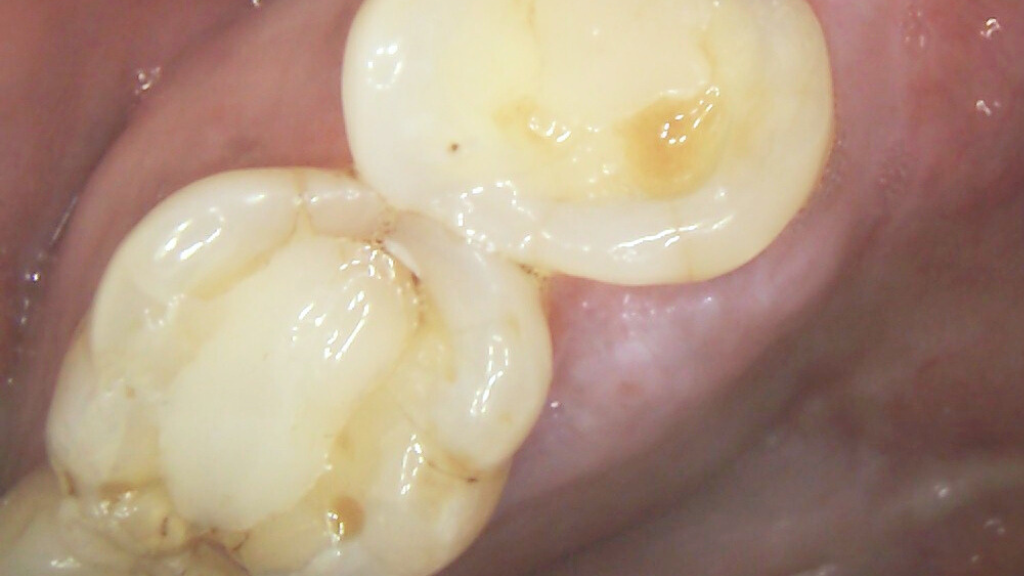
📅
Dr Jess Wong
Am I Grinding My Teeth? 7 Things to Look Out For
Do you ever wake up with a sore jaw or a headache? Have you noticed that your teeth feel more sensitive than usual? Has your partner complained about you making loud noises at night? If so, you may be grinding your teeth! Many people grind or clench their teeth during sleep or even unconsciously during the day, and this can lead to serious dental problems if left untreated.
What is Teeth Grinding (Bruxism)?
Teeth grinding, or bruxism, is the involuntary clenching or grinding of teeth. It most often occurs at night while you’re asleep, but some people also grind their teeth during the day, usually in response to stress or anxiety. Over time, teeth grinding can wear down your enamel, damage dental work, and lead to a range of oral health problems. Sometimes there may be no symptoms at all until something catastrophic, like cracks, occurs. It’s not always easy to know if you’re grinding your teeth, especially if you do it while you’re sleeping. However, there are several signs and symptoms to watch out for:
1. Jaw Pain or Soreness
Waking up with a sore or stiff jaw is one of the most common signs of teeth grinding. Clenching your jaw muscles while grinding your teeth puts significant strain on your jaw, leading to pain or tightness. Grinding your teeth is like running a marathon - afterwards, your muscles and joints will feel sore. The harder you grind, the more sore the muscles can become. But if you’re not grinding with a lot of strength, you may not wake up or even notice the sore muscles in the morning. Either way, over time, this can contribute to temporomandibular joint (TMJ) disorder, which causes persistent pain in the jaw joint.
2. Cracked or Chipped Teeth
Teeth grinding puts a lot of pressure on your teeth from all angles. Sometimes obvious chips can develop but most of the time, less obvious changes happen. Cracks in teeth are hard to visualize and diagnose - they can be subtle and it is often difficult to ascertain how deep they go, even with x-rays. A crack can act like a highway for bacteria and cause decay and pain if it reaches the nerve of the tooth.
3. Frequent Headaches
Teeth grinding can cause tension in your head and neck, leading to frequent headaches, particularly in the morning. These headaches are often described as a dull, aching pain that starts in the temples or the back of the head. Many muscles in the head and neck contribute to grinding, and any of these can become stiff and sore and feel like a headache.
4. Worn or Flattened Teeth
If you grind your teeth regularly, you may notice that the chewing surfaces of your teeth have become flat or worn down over time. This can also lead to visible cracks or chips in your teeth, even if you haven’t experienced any trauma to your mouth. This process can happen over a long period of time, usually over years, and so may not be immediately obvious.
5. Tooth Sensitivity
As teeth grinding wears away the protective enamel layer on your teeth, it can expose the sensitive inner layers, leading to tooth sensitivity. If you experience sharp pain when eating hot, cold, or sweet foods, it could be a sign that you’re grinding your teeth.
6. Clicking or Popping Jaw
Grinding your teeth puts extra pressure on your jaw joints, which can cause clicking or popping sounds when you open or close your mouth. This is often a sign of stress on the temporomandibular joint (TMJ), and it may also cause discomfort when chewing or speaking.
7. Disrupted Sleep
Many people who grind their teeth during sleep find that it disrupts their rest, either due to discomfort or because they wake up multiple times during the night. Teeth grinding can also affect your bed partner, as the noise of grinding can be loud and disturbing. It can be comp
What Can I Do If I’m Grinding My Teeth?
Teeth grinding can lead to significant oral health issues if left untreated, but with the right care, you can prevent long-term damage and enjoy a healthier, pain-free smile. If you’ve been experiencing any signs of bruxism, like jaw pain, tooth sensitivity, or frequent headaches, it’s important to seek dental care as soon as possible.